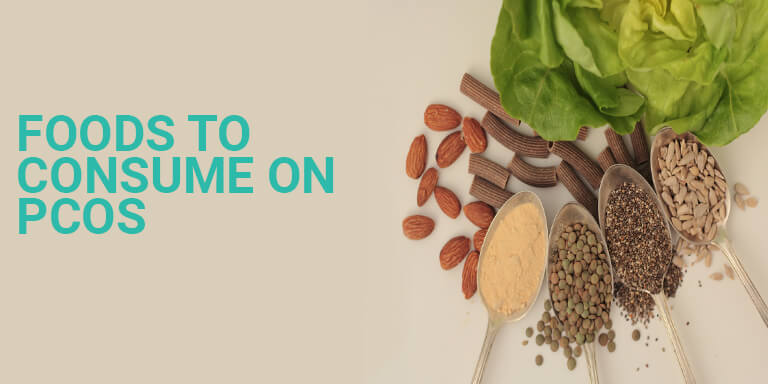Diet and nutrition have a very important role in PCOS weight management, and therefore, paying attention to what we eat and adapting to those foods helps in keeping PCOS under control.
Managing weight and hormones with specific foods
Apart from weight management, the nutrients we consume can have a direct impact on our hormone production and therefore, consuming certain nutrients can help relieve PCOS symptoms at hormonal level.
Foods to consume if you have PCOS
Leafy green vegetables: Nutrient rich, low in calories and rich in Vitamin B, leafy green vegetables are an ideal food choice for weight loss as well as nutrition. Most importantly, leafy vegetables like kale or spinach contain high levels of Vitamin B which more than 80% of the women who suffer from PCOS are deficient in.
Lean or organic meat: Safer on hormones than non-organic meat. If you are a non-vegetarian, eating grass-fed or organic lean meat is a better option than normal meat which usually contains higher levels of injected hormones and its consumption can directly affect your hormone levels. Organic meat is therefore safer to eat if you are experiencing hormonal imbalance.
Healthy fat: Aids in weight management, hormonal balance and fertility. A big concern for women with PCOS is fertility and pregnancy. Fatty acids play an essential role in both of these. For example, Omega 3 fatty acid which is found in fish or flax seeds, helps to:
- Regulate hormones
- Reduce your body’s sensitivity to prolactinwhich is a hormone that can suppress your ovulation
- Omega 3 increasesblood flow to the uterus
- It also increasescervical mucus which helps the sperm reach the egg
- It helps inregulating your menstrual cycle
Anything high in antioxidants: Berries, nuts, dark chocolate or green tea. Women with PCOS usually have a higher level of oxidative stress, and to tackle it, including foods with high levels of antioxidants in our diet is important. However, it is also important to select only those food options which do not cause a spike in blood sugar as they posses a risk of triggering PCOS induced diabetes.
Whole grains: To keep PCOS induced Type 2 Diabetes risk at bay. Women with PCOS are 4 times more likely to develop type 2 diabetes. Whole grains contain high levels of fibre which can help in managing insulin levels. High fibre foods such as oats, beans, nuts, dry fruits or wholegrain rice are slow release carbohydrates. This means, they release sugar or glucose into the blood at a slower rate and are therefore less likely to cause a spike in blood sugar levels which can otherwise lead to type 2 diabetes.
Special advice from doctor or nutritionist is very important
In addition to a good knowledge about PCOS friendly food options, it is always advisable to take specialist advice from a nutrition and medical perspective.

